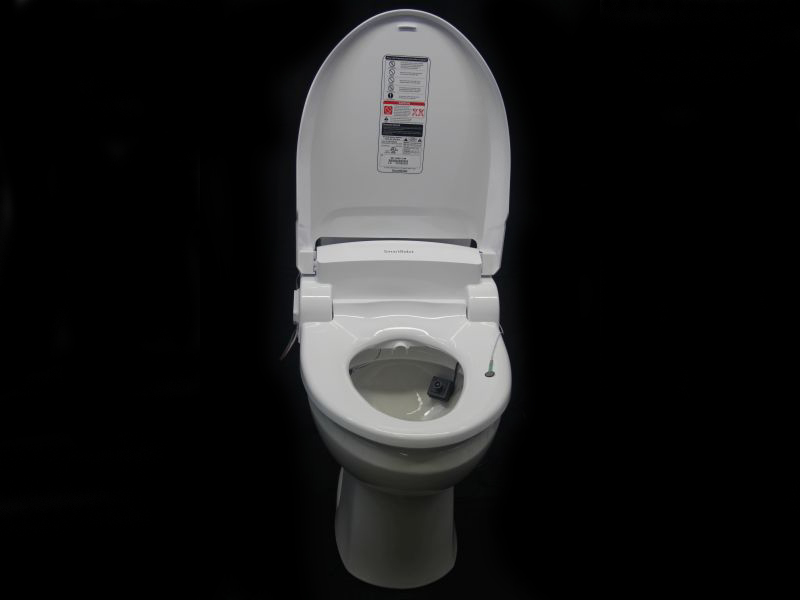
Latest Digestion News
 By Dennis Thompson
By Dennis ThompsonHealthDay Reporter
FRIDAY, April 17, 2020 (HealthDay News) -- Few think of the toilet as a font of valuable information, outside what you might read while you're sitting on the throne.
But a "smart toilet" is being developed that will help track your health by analyzing your excretions, researchers say.
The toilet would be fitted with technology that can detect a range of disease markers in stool and urine, said Seung-min Park, a senior research scientist with the Stanford University School of Medicine, in California.
That data could be forwarded to your doctor, who would track changes that might provide clues to such diseases as cancer, kidney failure, diabetes or irritable bowel syndrome.
"We're trying to monitor every aspect of human health that can be detected from human excretion," Park said.
It might sound far-fetched, but such information would prove a boon to doctors and the patients they treat, said Dr. Brian Rubin, chair of the Cleveland Clinic's Pathology and Laboratory Medicine Institute.
"We currently don't have access to continuous genetic data that's pouring out of feces and urine," Rubin said. "But we do know that a variety of nucleic acids and proteins are secreted in urine and fecal material, and they do provide insight into what's going on in the human body. It's the kind of thing that could really take medicine to the next level."
Stanford's smart toilet design uses cameras, motion sensors and chemical tests to check different indicators of your health:
- Urine flow rate provides information about a man's prostate health.
- Stool shape and consistency could show whether someone has a bowel disorder.
- Urinalysis tests your urine for signs of infection, bladder cancer, kidney failure and other illnesses.
Nearly two dozen volunteers have tested the toilet over the course of several months, according to a report published April 6 in Nature Biomedical Engineering.
The research team also surveyed 300 prospective smart-toilet users, and found that a little over half were comfortable with the idea of a toilet that analyzed them at their most vulnerable.
One potential reason for reluctance: to make sure your health markers are accurately tracked, the toilet has a couple of ways of identifying who is using it.
A fingerprint identification system on the flush lever provides one way to make sure no one mistakes your excretion for someone else's, Park said.
The other way the toilet tells you apart from family members and house guests is more potentially unnerving. There's no other way to say it -- a small camera scans your anus.
"We know it seems weird, but as it turns out, your anal print is unique," Dr. Sanjiv "Sam" Gambhir, senior researcher and chair of radiology at Stanford School of Medicine, said in a school statement.
Gambhir pledges that no one, not you or your doctor, will see either the fingerprint or the anus scans, which are used solely to match you with your data.
Park said his group is working with toilet companies to get this "smart toilet" to market within a year or two.
The "smart" aspect could either come with a toilet or be an add-on, something that you or a plumber would retrofit onto your own commode.
"It's sort of like buying a bidet add-on that can be mounted right into your existing toilet," Gambhir said. "And like a bidet, it has little extensions that carry out different purposes."
Right now the team is testing the toilet on more volunteers and refining the technologies equipped in the device.
They hope to individualize the tests deployed by the toilet, so that people with specific health problems like diabetes or cancer will get an analysis focused on their illness.

Copyright © 2020 HealthDay. All rights reserved.
CONTINUE SCROLLING FOR NEXT NEWS ARTICLE

SLIDESHOW
Kidney Stones: Symptoms, Causes, and Treatment See SlideshowReferences
SOURCES: Seung-min Park, Ph.D., senior research scientist, Stanford University School of Medicine, Stanford, Calif.; Brian Rubin, M.D., Ph.D., chair, Cleveland Clinic's Pathology and Laboratory Medicine Institute; Stanford University School of Medicine, news release, April 6, 2020; April 6, 2020, Nature Biomedical Engineering
Welcome to the 'Smart Toilet' That Can Spot Disease, Source:http://www.medicinenet.com/script/main/art.asp?articlekey=230438